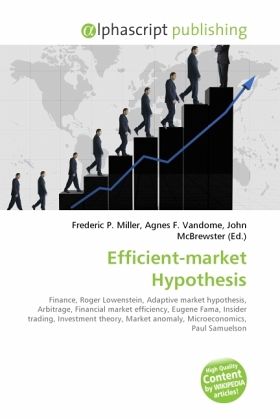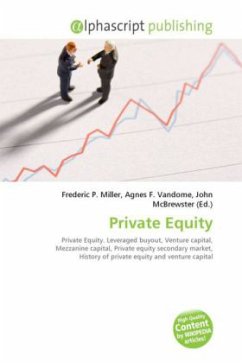
Efficient-market Hypothesis
Versandkostenfrei!
Versandfertig in 6-10 Tagen
23,99 €
inkl. MwSt.

PAYBACK Punkte
12 °P sammeln!
In finance, the efficient-market hypothesis (EMH) asserts that financial markets are "informationally efficient", or that prices on traded assets (e.g., stocks, bonds, or property) already reflect all known information, and instantly change to reflect new information. Therefore, according to theory, it is impossible to consistently outperform the market by using any information that the market already knows, except through luck. Information or news in the EMH is defined as anything that may affect prices that is unknowable in the present and thus appears randomly in the future. The hypothesis ...
In finance, the efficient-market hypothesis (EMH) asserts that financial markets are "informationally efficient", or that prices on traded assets (e.g., stocks, bonds, or property) already reflect all known information, and instantly change to reflect new information. Therefore, according to theory, it is impossible to consistently outperform the market by using any information that the market already knows, except through luck. Information or news in the EMH is defined as anything that may affect prices that is unknowable in the present and thus appears randomly in the future. The hypothesis has been attacked lately by critics who blame belief in rational markets for much of the current financial crisis, with noted financial journalist Roger Lowenstein recently declaring "The upside of the current Great Recession is that it could drive a stake through the heart of the academic nostrum known as the efficient-market hypothesis."












